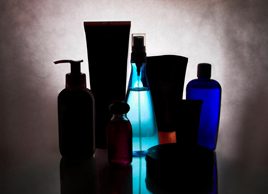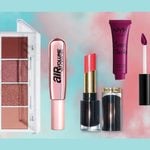Q&A: Why your makeup may be dangerous
Best Health speaks to Gillian Deacon, journalist and breast cancer survivor, about the toxins lurking in the beauty products we use every day

Source: Web exclusive, March 2011
Mercury. Formaldehyde. Triclosan. Parabens. These are just some of the potentially toxic ingredients in the personal care products you use every day. In There’s Lead in Your Lipstick, journalist Gillian Deacon sifts through the science to tell us what’s unhealthy in our bathroom cabinets and give us safe alternatives to buy, or even make’vinegar and oil are common ingredients; you can whip up a salad dressing after.
Best Health chatted with Deacon’who stopped working on the book for several months in 2009 to undergo treatment for breast cancer‘about hormone disruption, government legislation and how not to get ‘greenwashed’ in the beauty aisle.
BH: How did you balance being a journalist intent on the facts and your emotions over surviving a cancer’one that you suspect could have been caused in some way by the toxins around you?
Gillian Deacon: I really had my journalist’s hat on when writing this. I think it’s automatic when I’m sitting down at my desk surrounded by research. But things that might not have resonated with me in the past struck me differently. Before cancer, when I would read about hormone disruption I would think ‘Oh yeah, I get PMS and skin breakouts.’ But my tumour was an estrogen-fed tumour. For the next five years I’m taking hormone blocking drug treatments. So now I’m much more aware of how serious that claim is.
BH: People are aware of pesticides in their produce and have changed the way they eat. But many of have heard of the toxins you write about in the book and yet we still head down to the drugstore for the same old lotions and shampoos. Why?
GD: I guess it’s because old habits die hard. People become attached to the effect of one product over another. I think it’s hard for people to overturn and overhaul this part of their lives. They think: ‘It’s been okay for me this far and I’m fine. I’m not going to keel over tomorrow.’ The other side of it is there’s no government pressure to make changes happen so manufacturers keep on making products the same way.
BH: Some natural beauty products out there are really bad’for example, I once bought hair gel that was a total disaster. How do you find stuff that works?
GD: I’ve spent a fortune on trying different things over the years, and I keep looking until I find the brand that works. I totally get that there’s challenge to finding the same standard of efficacy, but I think if you keep looking you’ll find something. That’s where the book comes in; it makes a shortcut of the process. There are also more companies emerging that have found a way to make beauty products that smell wonderful and are safe.
BH: When shopping for truly safe toiletries, do you have a trick to making sure you’re not being greenwashed?
GD: When you see a picture of a pretty green leaf or the word ‘natural,’ you have to flip the product over and read the label. That’s what the first chapter in the book is about. We’ve made wallet cards that you can get when you buy the book and download from my website [gilldeacon.com] that list the top ten brands that you can trust and the top 20 ingredients to avoid. But they don’t list lead in lipstick. It could make you nuts, trying to be perfectly safe, but we can only do what we can do’that’s where the cancer patient comes out in me.
BH: Can you find effective, safe products in your local drugstore or do you need to make the leap to shopping in a health food store?
GD: Some truly green products will find their way on the big store shelves. But there’s no question you’re more subject to greenwashing, as the companies that make it into these stores are spending more on marketing and pretty packaging than on high quality ingredients.
BH: For Best Health readers who may not be familiar with your book, what is the key piece of advice that you would want them to know?
GD: We cannot assume as we stand in the product aisles where we buy our personal care products that there has been testing done to ensure that all the ingredients in all these products are safe for us in the short term or long term. Everyone thinks the government and regulatory agencies out there have done their due diligence, but that is absolutely not the case. We have to ask ourselves how much does that matter to us and how willing are we to make the extra effort to limit the number of toxins we’re exposed to.
Don’t miss out! Sign up for our free weekly newsletters and get nutritious recipes, healthy weight-loss tips, easy ways to stay in shape and all the health news you need, delivered straight to your inbox.




